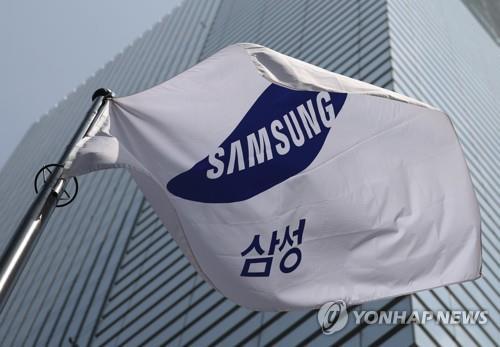- California Assembly OKs highest minimum wage in nation
- S. Korea unveils first graphic cigarette warnings
- US joins with South Korea, Japan in bid to deter North Korea
- LPGA golfer Chun In-gee finally back in action
- S. Korea won’t be top seed in final World Cup qualification round
- US men’s soccer misses 2nd straight Olympics
- US back on track in qualifying with 4-0 win over Guatemala
- High-intensity workout injuries spawn cottage industry
- CDC expands range of Zika mosquitoes into parts of Northeast
- Who knew? ‘The Walking Dead’ is helping families connect
Samsung, employees agree to 4.1 pct pay raise for 2023
Samsung Electronics Co.’s management and its workers agreed to an average 4.1 percent pay raise for the year, sources said Friday, while effectively freezing raises for its board members due to poor performance amid a worsening chip glut and a global slowdown.
The world’s largest memory chip and smartphone maker reached an agreement with representatives of its employees over wages and other labor policies, including extending shortened working hours for pregnant employees. The announcement was said to be made internally earlier in the day, according to the sources.
The pay raise is lower than the 9 percent wage hike of the previous year, which was the highest in a decade, and lower than the initial demand from the workers.
Both parties hammered out the compromise, taking into consideration the external headwinds that caused the quarterly profit to plunge nearly 96 percent in the first quarter.
Last week, the tech giant estimated its operating profit for the January-March period at 600 billion won (US$454.9 million), sharply down from 14.12 trillion won a year ago.
Samsung’s Device Solution (DS) division, in charge of its chip business, is forecast to run a deficit of around 4 trillion won, in its first financial loss in 14 years, according to analysts’ estimates, as a surplus chip inventory has been growing significantly amid tapering global demand.
The management decided to apply last year’s pay policy for board members, effectively putting off its initial plan to raise the pay ceiling for board members by 17 percent.
Separately, Samsung’s unionized workers, which accounted for around 4 percent of the total 110,000 workers, have engaged in wage negotiations with the management since late last year.
The two parties have so far held 10 rounds of negotiations but could not iron out differences.
“We will discuss measures to boost workers’ morale when the management environment improves,” Samsung said, adding it will “sincerely engage” itself in the negotiation with the labor union.












